Are you passionate about making a positive impact in our community? Collaborating with a non-profit organization can amplify your efforts and create lasting change. In this article, we'll explore how to effectively propose a partnership with a non-profit, ensuring that both parties benefit from the collaboration. Join us as we delve into strategies and tips that can help you craft a compelling proposal to inspire action!
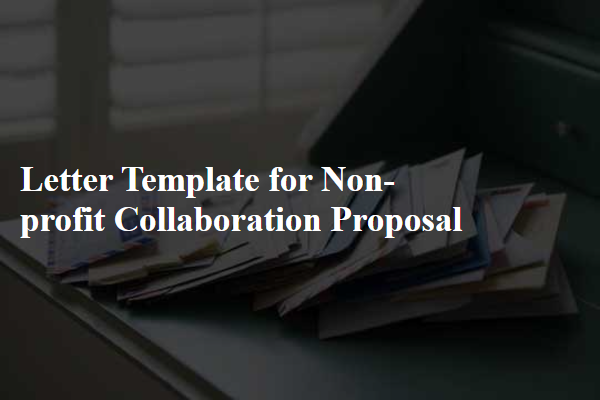
Clear Mission Alignment
Non-profit organizations focused on environmental conservation often seek partnerships with corporations that prioritize sustainability initiatives. By aligning missions, organizations can amplify their impact and reach a broader audience. Collaboration opportunities might include joint fundraising events, awareness campaigns, or educational programs in specific communities, such as urban areas with high pollution rates. Non-profits like the Sierra Club advocate for climate action, while corporations like Patagonia support grassroots movements. These partnerships can lead to increased funding, community engagement, and shared resources, ultimately fostering a culture of environmental stewardship within targeted demographics. Clear mission alignment between the entities can create powerful synergies, enhancing the effectiveness of their collective efforts.
Defined Objectives and Goals
A non-profit collaboration proposal should focus on clear objectives and measurable goals to ensure alignment and effective impact. For instance, enhancing community engagement through joint outreach strategies can result in a 30% increase in participation in local events within six months. Another objective could involve providing educational resources, aiming to distribute 1,000 free books across under-resourced schools in the area by the end of the fiscal year. Additionally, utilizing a shared platform for fundraising could target raising $50,000 to support both organizations' programs by the next annual gala, scheduled for April 2024. These defined objectives create a roadmap for collaboration and make it easier to evaluate success.
Potential Benefits and Impact
A non-profit collaboration proposal can effectively leverage shared resources and expertise to enhance community impact. Joint initiatives between organizations such as food banks and local health clinics, for instance, can address food insecurity affecting over 10 million adults in the United States. By combining efforts, non-profits can streamline service delivery, increase access to nutritious options, and improve public health metrics. Collaborative workshops in cities like New Orleans on nutrition education can empower underserved populations, leading to healthier lifestyle choices. Furthermore, shared fundraising campaigns can amplify outreach, attracting financial support from larger donors and foundations, including the Bill and Melinda Gates Foundation, which aims to tackle systemic issues like poverty and hunger. Overall, strategic partnerships can lead to sustainable community development, driving meaningful change and improving quality of life for individuals and families in need.
Resource and Role Distribution
Non-profit organizations seeking collaborative partnerships often emphasize resource sharing and role distribution. Clarity in resource allocation, such as funding (grants amounting to $50,000), volunteers (approximately 20 individuals), and materials (educational tools valued at $10,000), can greatly enhance the effectiveness of joint initiatives. Strategic role distribution is essential; for instance, organization A might focus on community outreach while organization B handles program implementation. Coordination based in urban centers, like New York City, allows for leveraging local networks and enhancing visibility. Regular meetings (every quarter) facilitate ongoing assessment and adjustment of contributions, ensuring that all parties remain aligned with the common mission. Establishing clear metrics for success, such as the number of beneficiaries served (targeting 500 individuals), reinforces accountability and maximizes the impact of the combined efforts in the community.
Communication and Follow-up Plan
A comprehensive communication and follow-up plan is essential for successful collaboration between non-profit organizations, ensuring clear messaging and effective partnership management. Regular touchpoints (weekly or bi-weekly meetings) can help address progress on shared initiatives, such as community outreach programs or fundraising events. Utilizing project management software (e.g., Trello or Asana) can facilitate tracking tasks, deadlines, and assigned responsibilities for team members. Additionally, establishing a centralized communication channel (e.g., Slack or Microsoft Teams) will streamline discussions, allowing instant updates and feedback between organizations. Post-event evaluations will be conducted quarterly to assess the impact of collaborative efforts on objectives, such as improving local education resources or enhancing environmental sustainability initiatives. An annual partnership review will promote accountability and growth, providing insights into future collaborations and strategies to maximize resource utilization.
Letter Template For Non-Profit Collaboration Proposal Samples
Letter template of collaboration request for community service initiatives
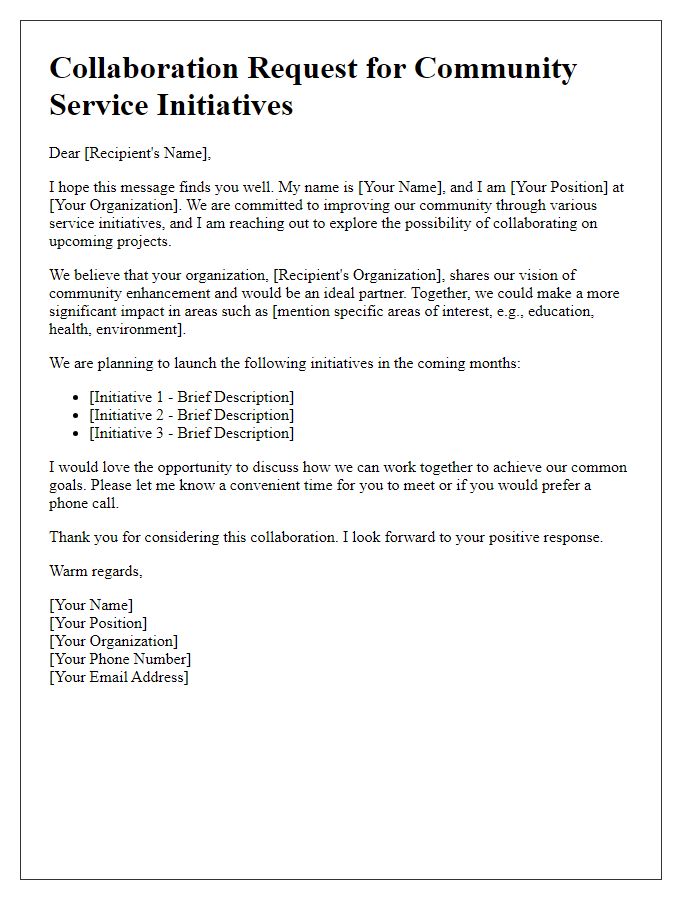
Letter template of network collaboration proposal for nonprofit entities
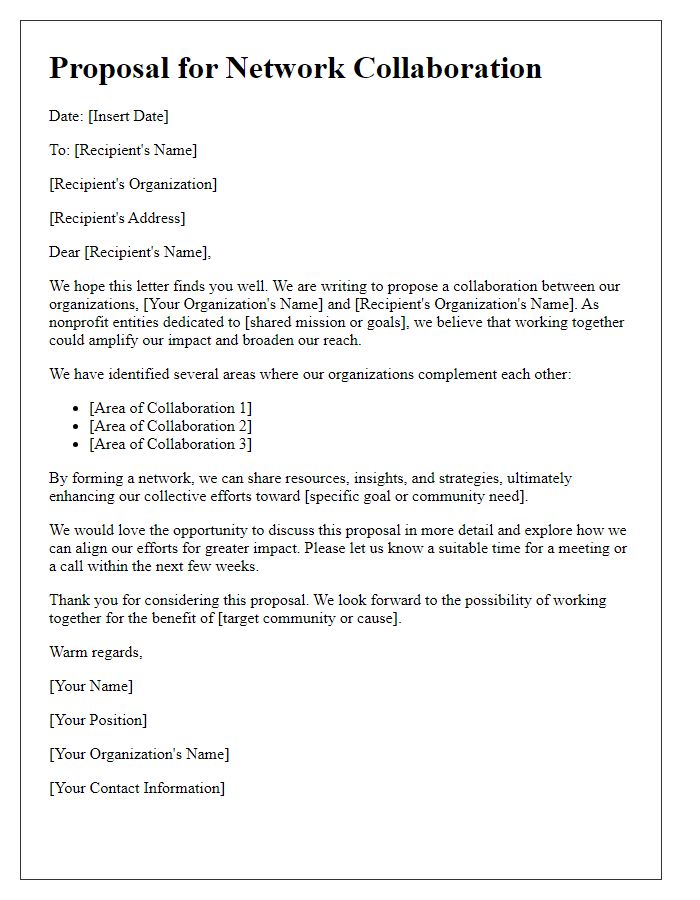
Letter template of strategic alliance proposal for humanitarian projects
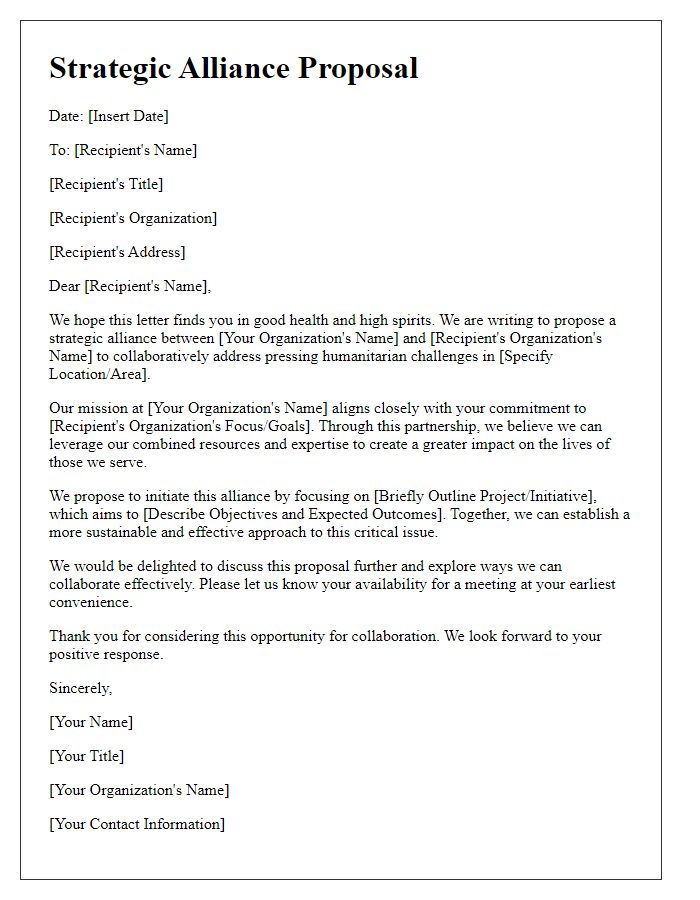
Letter template of community partnership offer for non-profit activities
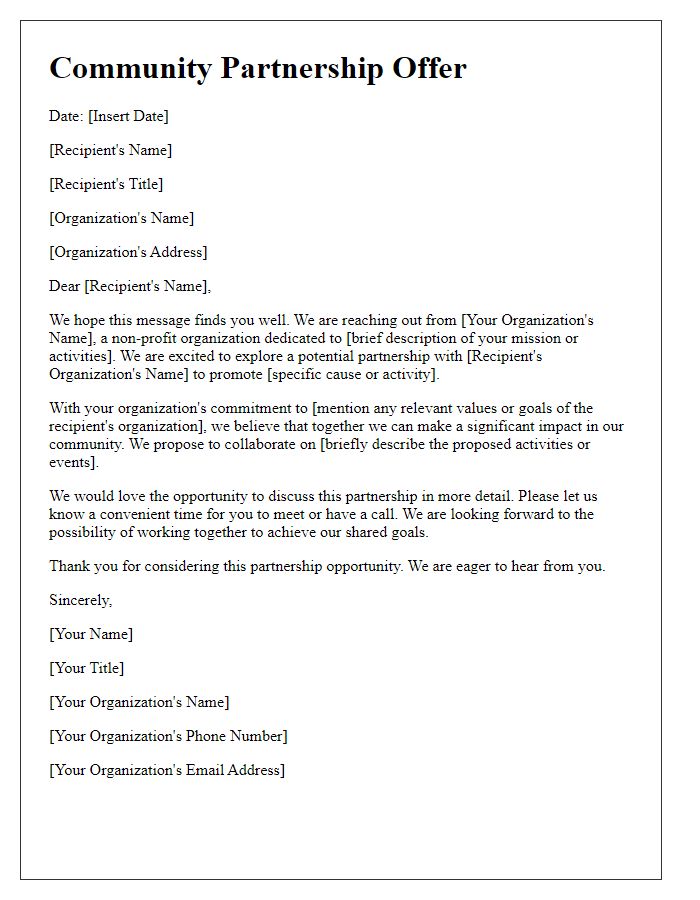

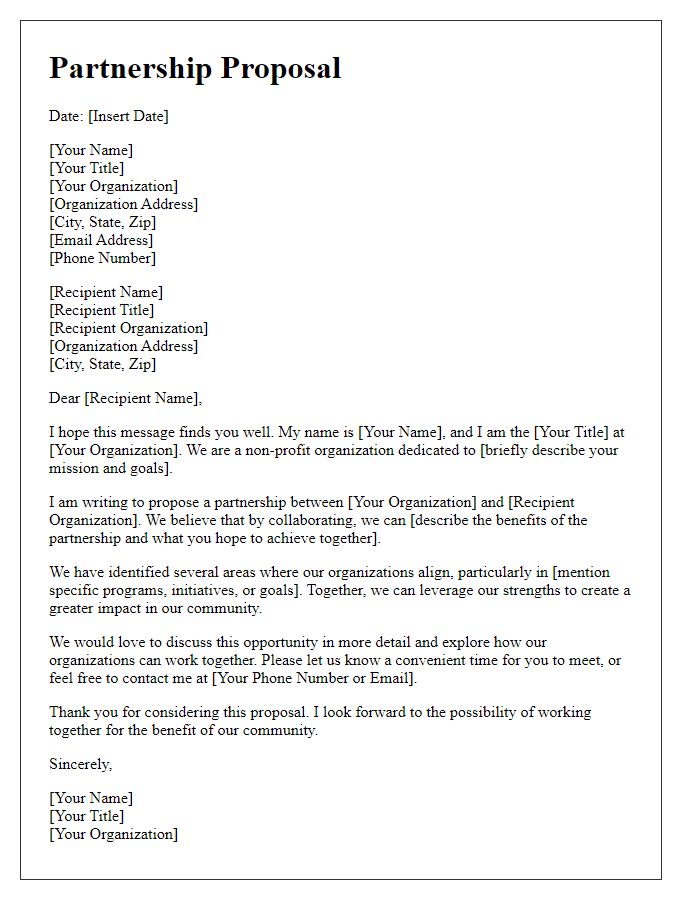
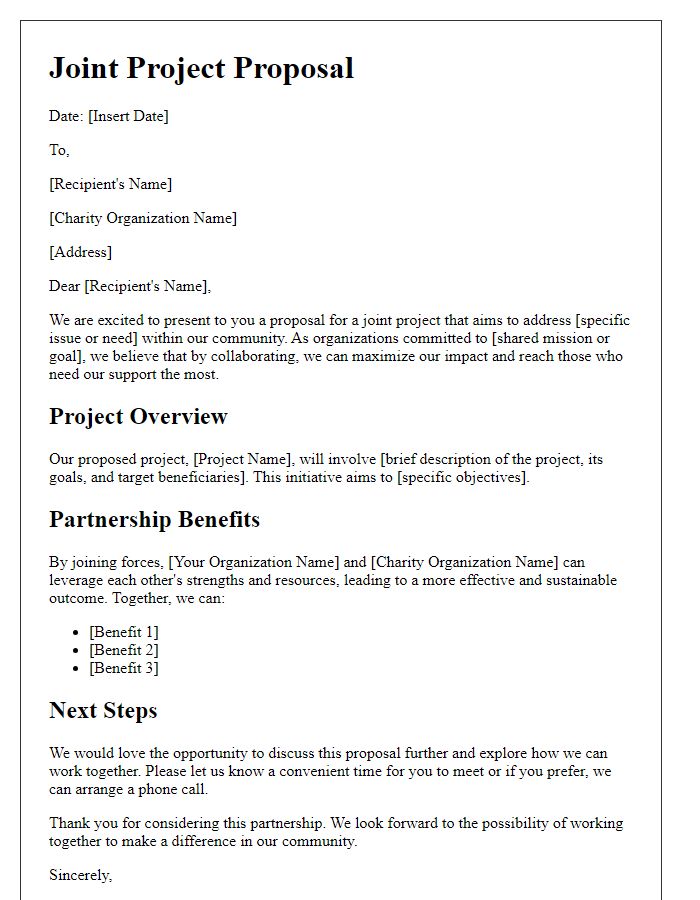
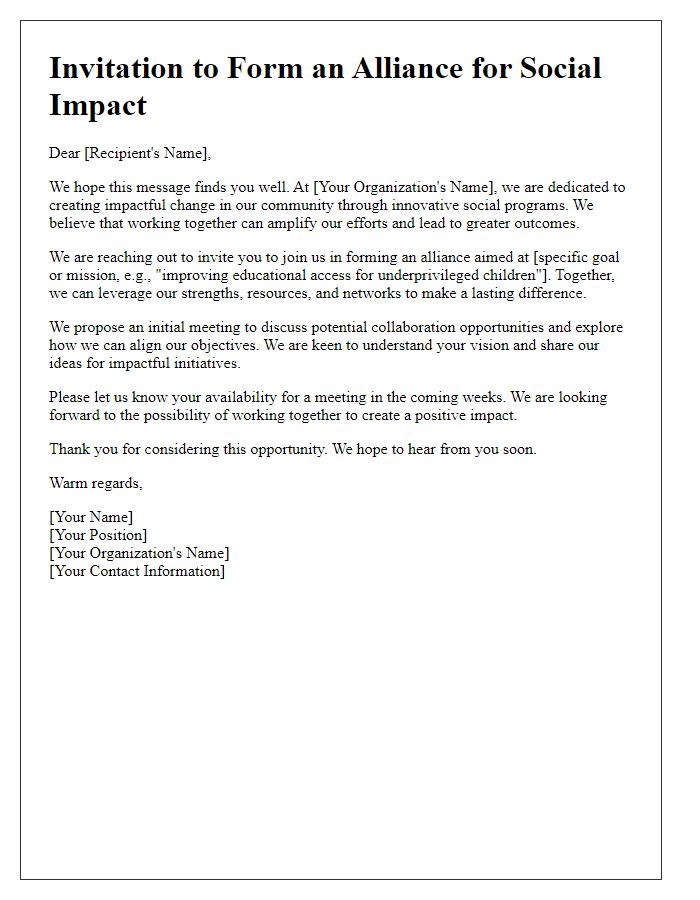
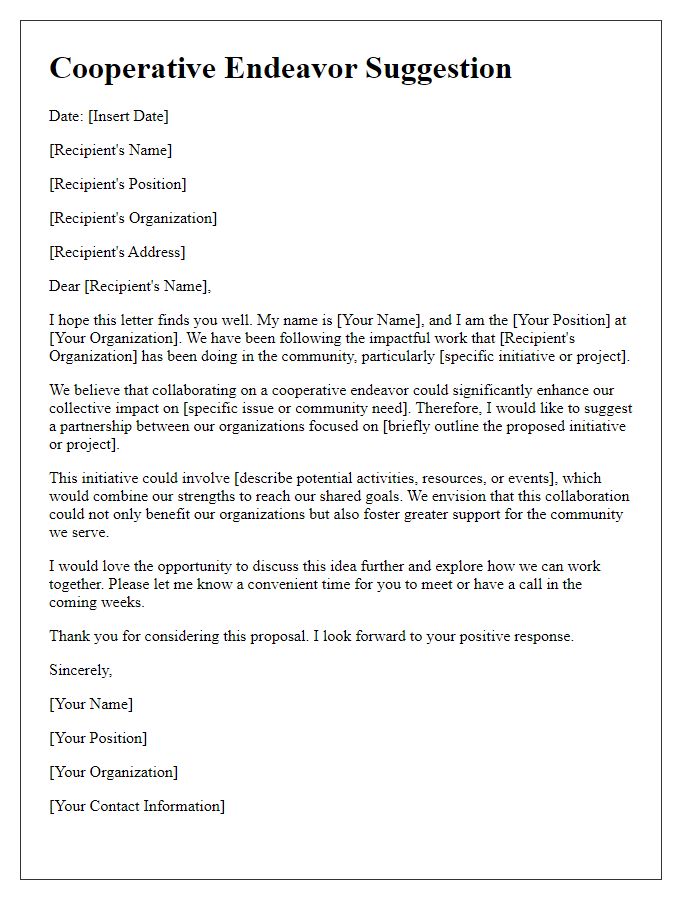
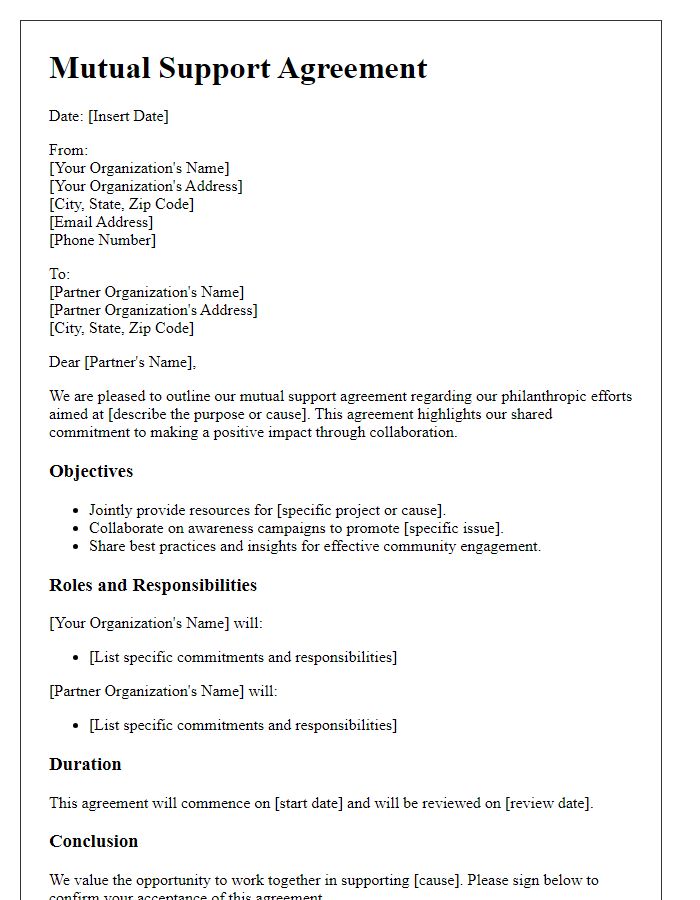
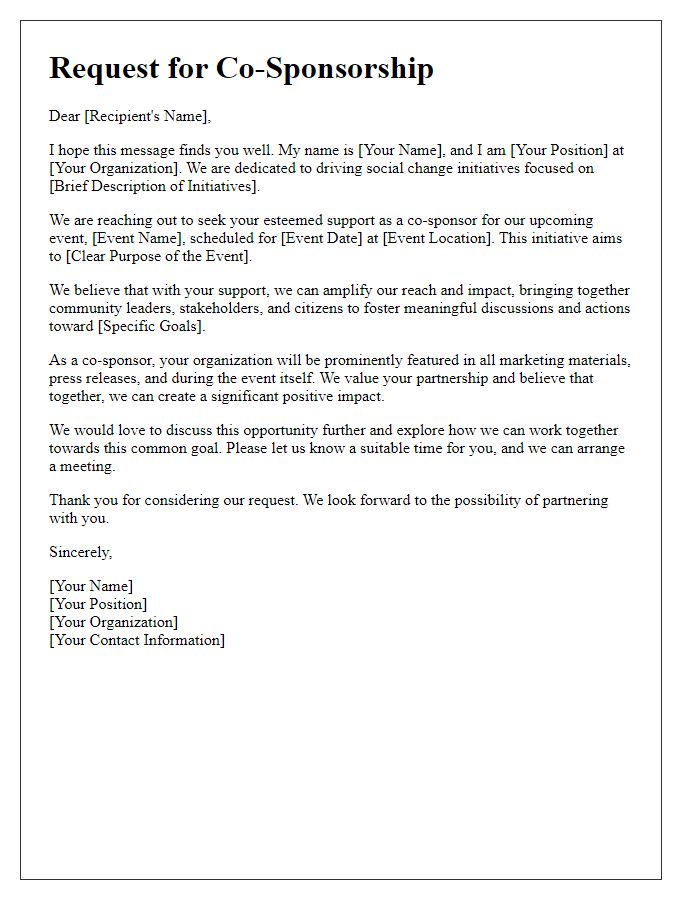

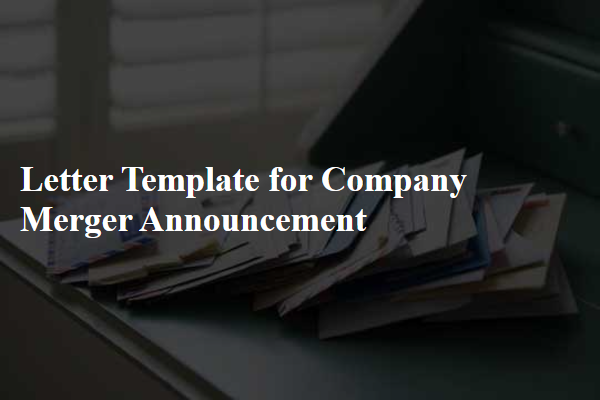
Comments